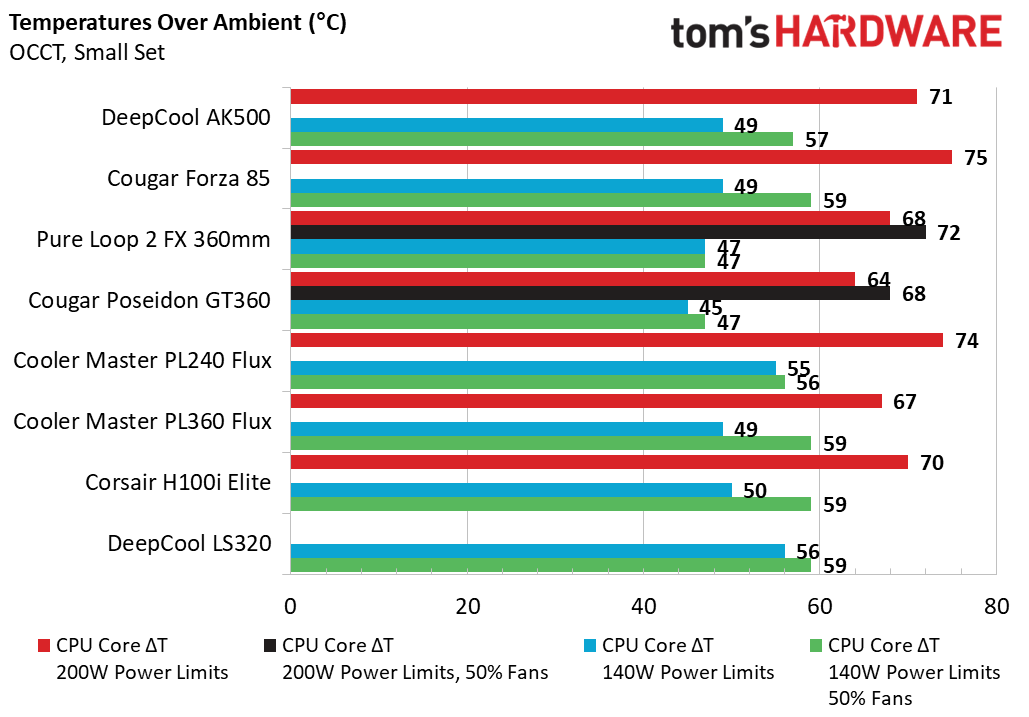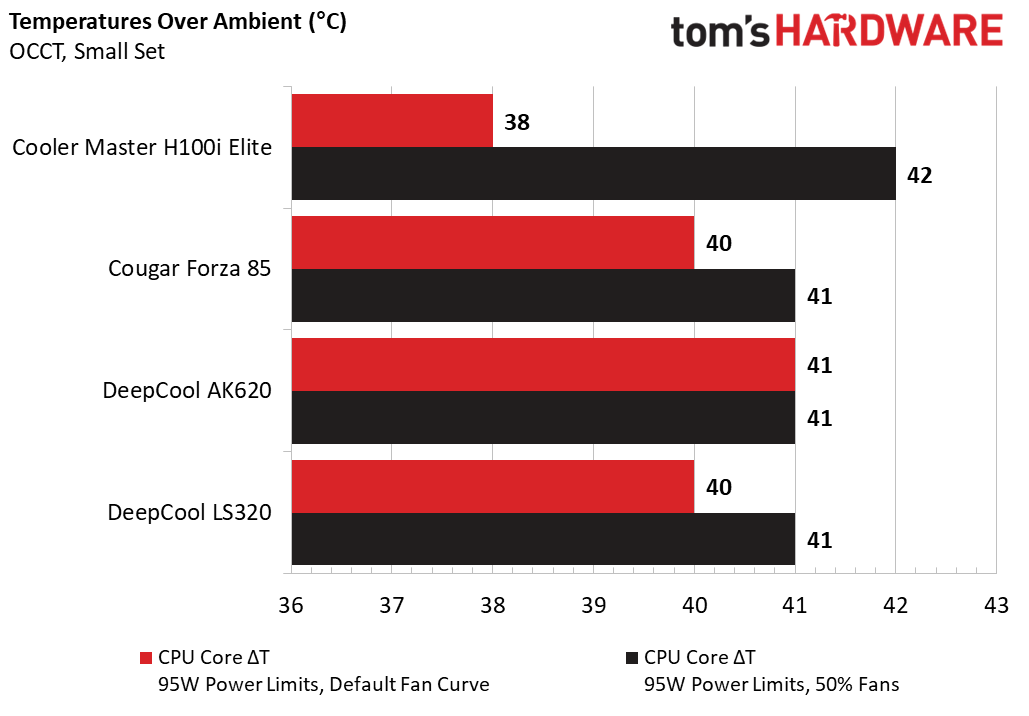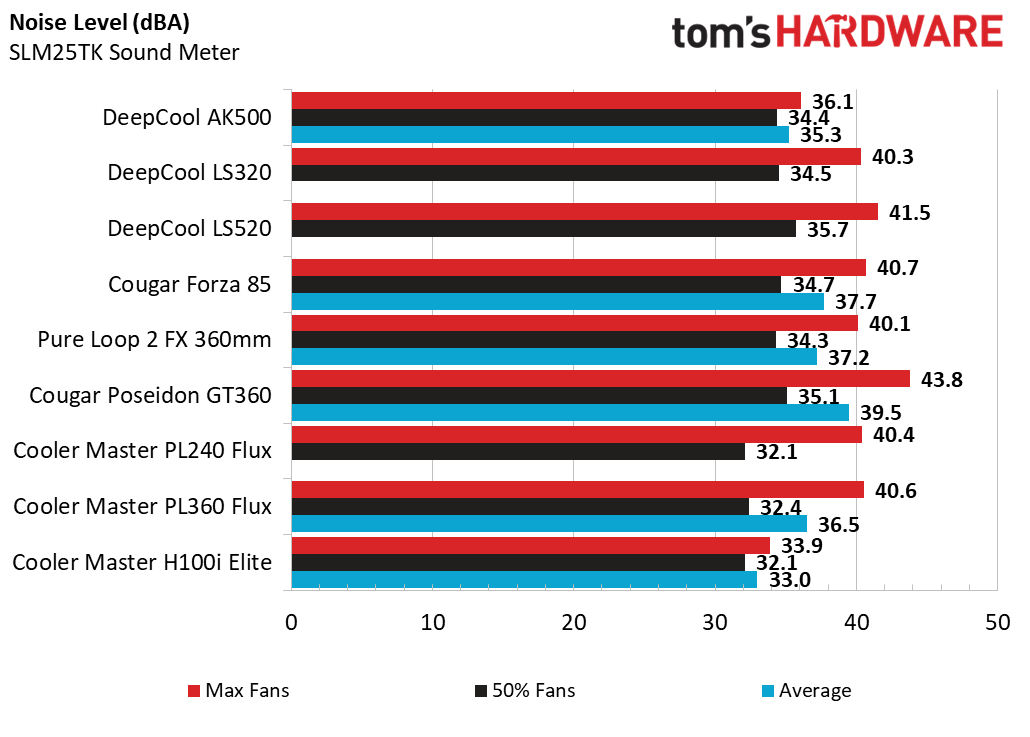Why you can trust Tom's Hardware
Cinebench Test Results
In the past, I’ve begun my cooler testing with Intel’s i9-12900K by testing Cinebench without power limits and with a 200W power limit enforced. Unfortunately, DeepCool’s LS320 wasn’t capable of passing either of these tests. However, this is to be expected as it’s a 120mm AIO and users who want a cooler capable of cooling higher TDP loads should be looking at 240/280mm sized AIOs or larger.
200W and 140W OCCT Test Results
I usually like to run OCCT's small set stress testing for stability when overclocking, but on Alder Lake I haven't found a cooler that's capable of handling OCCT without throttling unless power limits are enforced.
I test OCCT at 200W to demonstrate a thermally demanding load, but also with a 140W power limit enforced to show how these coolers might perform with a CPU that's easier to cool, like Intel's i5-12600K or AMD's Ryzen 5800X.
Just like with Cinebench, the LS320 wasn’t able to pass our 200W testing here. However, when restricted to a more reasonable 140W, the LS320 handled our cooling tests easily. It performed about equal to the Corsair H100i Elite and Cooler Master’s PL360 Flux when limited to 140W and 50% fan speeds.
95W OCCT Test Results
I’ve begun to include 95w testing results due to reader requests. These results should be representative of performance on CPUs like AMD’s Ryzen 5 5600X or Intel’s i5-12400. In this testing, the LS320 performed well–on par with most coolers tested at this power level.
Noise Levels and Acoustics
To test noise levels, I used the SLM25TK Sound Level Meter positioned 18 inches behind the rear of the Be Quiet Silent Base 802 PC case, and recorded early in the morning to achieve the lowest noise floor possible. The chart below shows averaged results, measured over the course of five minutes, to account for sudden variations in measurements.
The LS320 runs fairly quietly in workloads it was designed to handle, running realistic workloads with TDPs of 140W or less will result in fairly quiet operation. This cooler output only 34.5 dBA when restricted to 50% fan speeds. If you attempt to cool high TDP loads on it, noise levels will be comparable to Be Quiet’s Pure Loop 2 FX or Cooler Master’s PL240 Flux, as the fan hits 100% RPM speeds.
Get Tom's Hardware's best news and in-depth reviews, straight to your inbox.
Conclusion
DeepCool’s LS320 is a small AIO, which is best paired with CPUs of mid-range TDPs, like Intel’s i5-12600K. It’s capable of handling 140W-plus when paired with Alder Lake CPUs, although it will get noisy as the fan speed maxes out. The LS320 is a bit expensive for the performance it provides, but it will work well in SFF cases that don’t have room for bigger coolers.
- MORE: How to Buy the Right CPU Cooler
- MORE: How to Overclock a CPU
- MORE: How to Check CPU Temperature
- MORE: All CPU Cooling Content

Albert Thomas is a contributor for Tom’s Hardware, primarily covering CPU cooling reviews.


